- About us
- Company details
The territory of the municipality of Sammichele di Bari has expressed a favorable area for the establishment of high-level nursery activities. The mild climate, favored by the north winds opposed by the sirocco, makes the spring and summer periods pleasant; the temperature range, typical of the south-eastern part means that the plants produced in this area have different characteristics from those produced in other areas, rightly so. Here, the FORTUNATO VIVARI were born, which has been producing nursery plants since the end of the nineteenth century. It is a family tradition handed down for three generations, today headed by Mr. Fortunato Luca who will soon leave the reins to his daughters, Maria and Lorenza, currently engaged in continuing their studies at the University of Agricultural Sciences and Technologies.
THE FORTUNATO VIVARI have 80 hectares of very fertile land, served by technologically advanced irrigation systems and 10,000 square meters of tunnel greenhouses for the initial stages of cultivation. Much of the production is developed in pots, arranged on a surface of 25,000 m2 of yards equipped with anti-hail net protection structures, served by 200,000 drip points fed by a controlled fertigation irrigation system.
The company structures are complete with approximately 2,000 m2 of sheds for vehicle storage and equipped work areas, 500 m2 of photovoltaic greenhouses for self-production of electricity, 6 ha of mother plant fields and catalogue fields where the fruit production is controlled and shown to producers who have the opportunity to make the right assessments before their investment choices. In recent years, VIVAI FORTUNATO have identified professional figures within the company who, thanks to continuous updates with specific professional training courses, make the organization at work and the quality of the material at the highest level of excellence.
The largest production concerns the production of saplings and rootstocks of fruit trees produced in the field with bare roots, followed by the production of micro-grafted plants in pots. The latter give the producer the possibility to plan his investment and proceed with the purchase at any time of the year.
Almost all the fruit varieties multiplied by Vivai Fortunato are subject to exclusivity using concession contracts stipulated with the major breeders and publishers in the world. Currently, Vivai Fortunato is working hard to achieve new goals and improve existing ones: - Product traceability: Vivai Fortunato uses cutting-edge IT systems to manage all the production processes of each individual plant and guarantee its traceability and phytosanitary health - Certification system: Vivai Fortunato uses the QVI brand recognized by Masaf as the highest quality level of fruit tree nursery production - Creation of a new mother field: in 2023 Vivai Fortunato started a QVI mother plant field where they can collect controlled and harmful organism-free grafting material of the apricot, cherry, almond, peach, plum and olive species.
- ENVIRONMENTAL IMPROVEMENT: Among the future projects, Vivai Fortunato plans to install new photovoltaic systems aimed at saving CO2 emissions while reducing the use of energy from renewable sources; the construction of a cold storage room for the storage and conservation of plant material, in order to create optimal breeding conditions, ensuring the production of high-quality material; the expansion of covered structures with technologically advanced systems for the protection of plants grown outside the field; introduction of bar code systems to monitor the transformation processes of nursery lots.
Year of establishment:
1985
Number of employees:
FROM 10 TO 19 EMPLOYEES
Annual turnover:
between 0.5 and 2.5 million Euro
Reference year of turnover:
2023
Export turnover:
From 250.000 to 750.000 Euro
Activities:
Growing of perennial crops
Plant propagation
Retail sale of flowers, plants and fertilisers
- Contact Information
- Business Proposals
Company:
FORTUNATO LUCA
Web site:
Address:
PIAZZALE CONTRADA CANALE S.N.
City:
SAMMICHELE DI BARI (BA)
Zip Code:
70010
Social media:
Tag:
No business proposals uploaded
- Map
ALMOND TREES
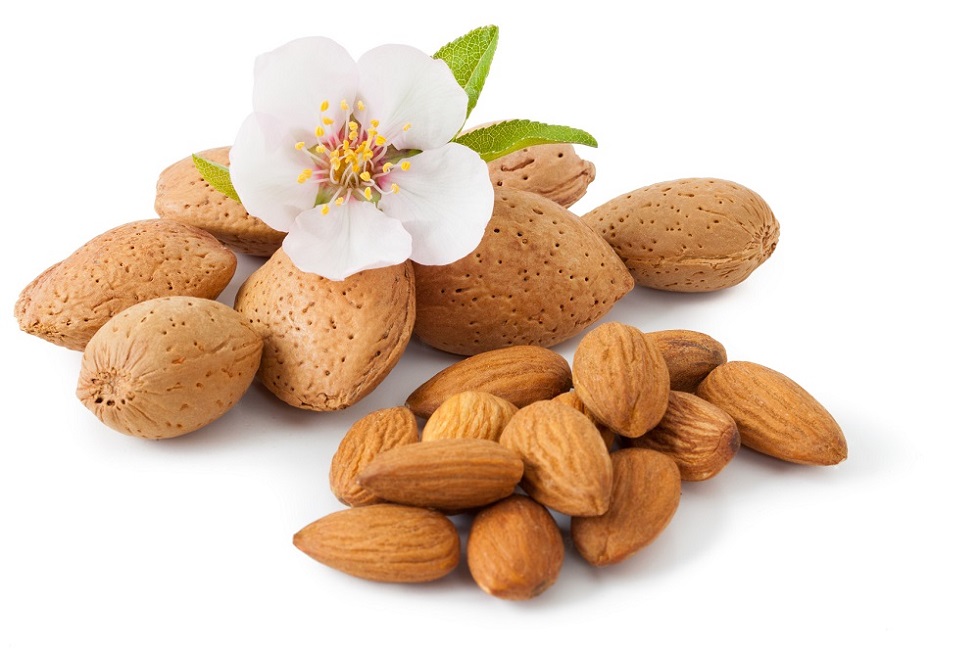
The almond tree (Prunus dulcis) is a species native to Asia Minor, widespread throughout the Mediterranean basin and widely cultivated in various countries of the hemisphere such as the United States and Australia.
The main destination of the seed is represented by industrial processing for the confectionery sector, for the production of sugared almonds and almond milk.
The varieties are divided into self-fertile and self-sterile, in this, the Apulian germplasm is the one that has given the character of self-fertility to the species: in fact, this material is used for the most important genetic improvement programs in the world.
The species in recent times, thanks to the great availability of varieties, with a wide flowering calendar and an adequate remuneration of prices, is arousing more and more interest in being cultivated in new areas, conquering large spaces of territory.
OUR VARIETIES: FILIPPO CEO, GENCO, TUONO, SUPERNOVA, MAKAKO, PENTA.
CHERRY TREES
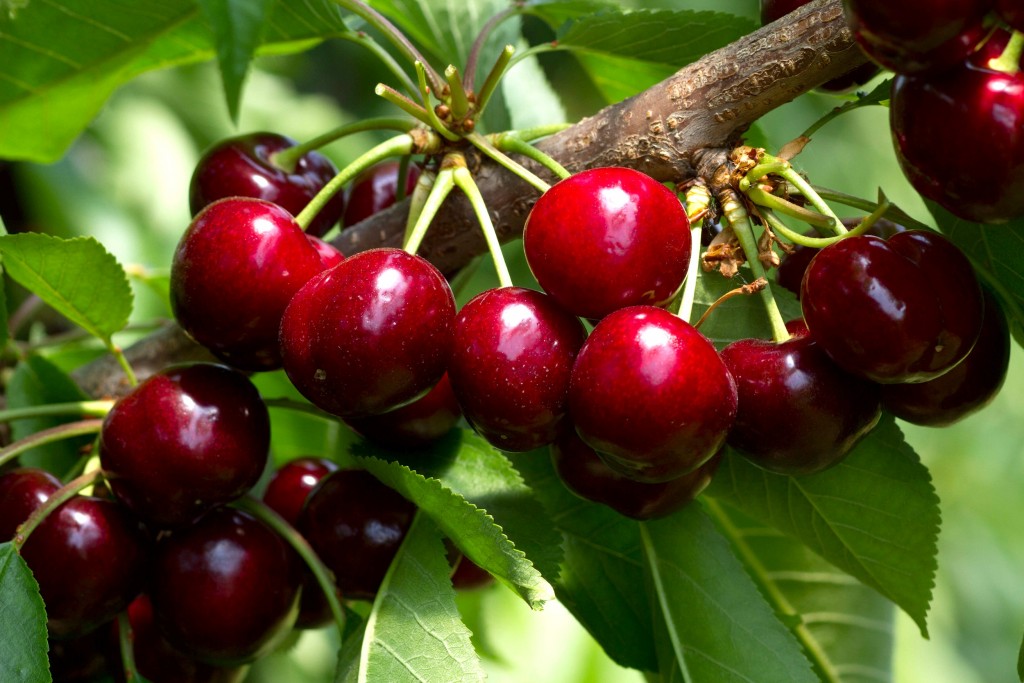
The cherry tree (Prunus avium) is a species belonging to the Rosaceae family, native to Europe and some mountainous areas of Asia Minor.
In Italy it is present from the hilly to the mountainous areas, presenting a good resistance to the cold.
APRICOT TREES
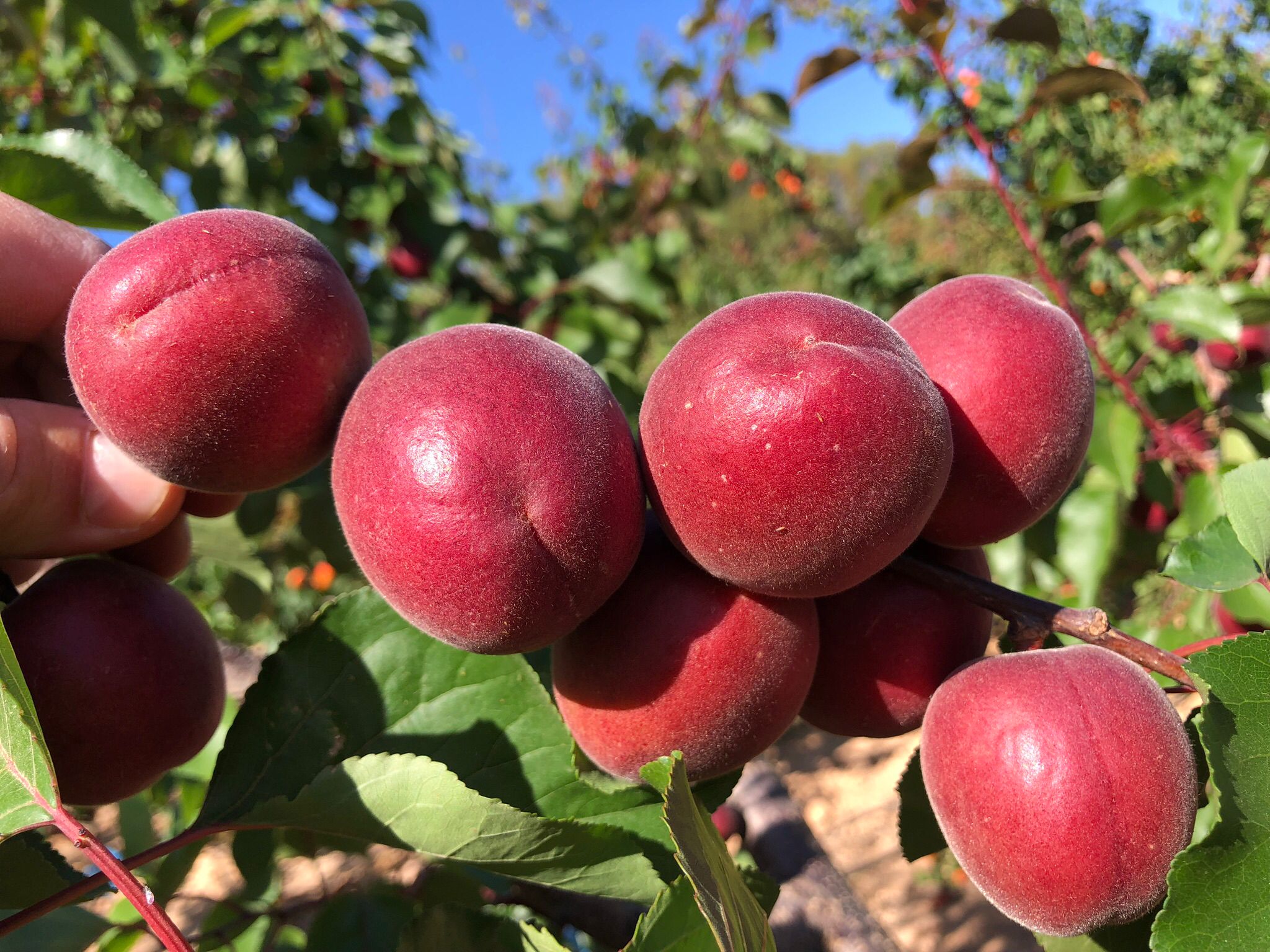
The apricot tree (Prunus armeniaca) is a species native to northeastern China on the border with Russia.
Its presence dates back more than 5000 years of history.
Today it is widespread in over 60 countries and is grown in warm or temperate and relatively dry climates.
Over the last 15 years in Italy, the cultivation of the apricot, among stone fruits, is one of the few that has increased the surfaces, thanks also to the diffusion that this crop has had in southern environments.
We have moved from old varieties of Campania origin, mainly intended for industrial processing, to varieties more suitable for the fresh market.
The varieties illustrated and mentioned in the catalog are enriched with new selections that aim to search for clones and accessions resistant to pathogens of the species, in particular to SHARKA (PPV).
The red apricot tree (Prunus armeniaca) represents an opportunity for the future of fruit growing.
The new varieties have different pomological characteristics compared to the past and in particular the intense orange background color, with a part of the skin overcolored red. This typology has been much appreciated by the consumer and the genetic improvement programs worldwide have developed this character so much as to today offer fruits completely overcolored red.
FLAT NECTARINE TREES
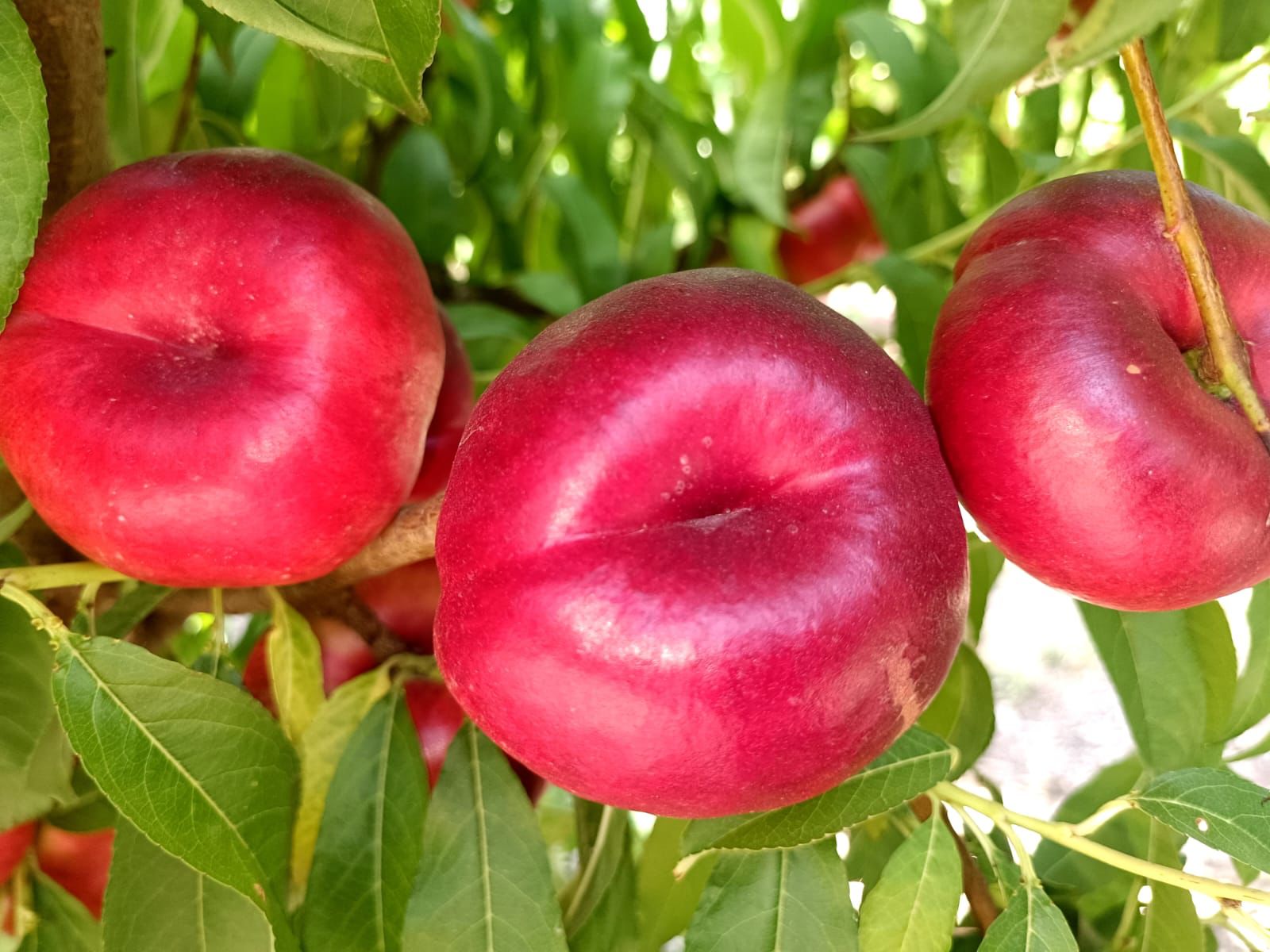
The flat peach or platicarpa (Prunus persica) is part of the traditional peach heritage of some European areas, such as the region of Murcia (Spain) and Sicily. Until a few years ago, its commercial diffusion was very limited due to some very serious defects: cracks in the style area, detachment of the epidermis together with the stalk at harvest, sensitivity to rot during post-harvest storage.
Today, thanks to genetic improvement programs by Breeders, we find new varieties of flat peaches and FLAT NECTARINES that retain all the requirements requested by the market: COLOR, SIZE, CLOSURE OF THE PISTILLARY CAVITY, SWEET AND AROMATIC FLAVOR
HUZELNUT TREES
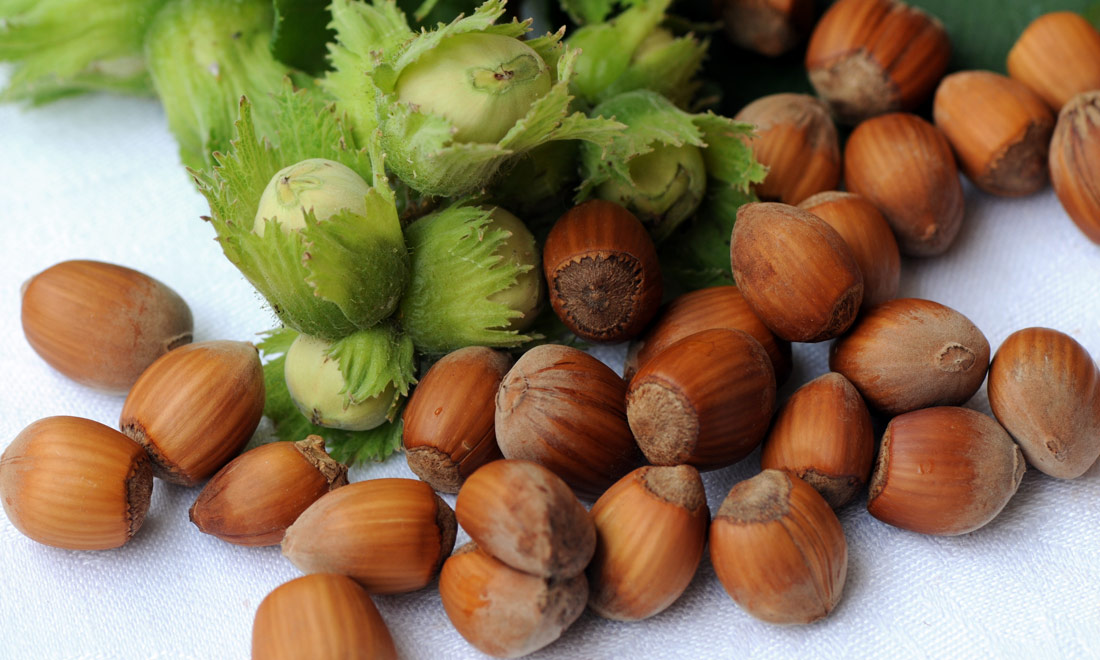
Hazelnut (Corylus avellana) is a species belonging to the Betulaceae family.
In Italy, the second world producer after Turkey, hazelnut is intensively cultivated in some specific areas.
In recent years, thanks to some projects that our Company has developed, we have gained great experience on hazelnut grafted on non-sucker-bearing rootstocks that allow us to significantly reduce the management costs of the orchard linked to the natural bush habitus.


